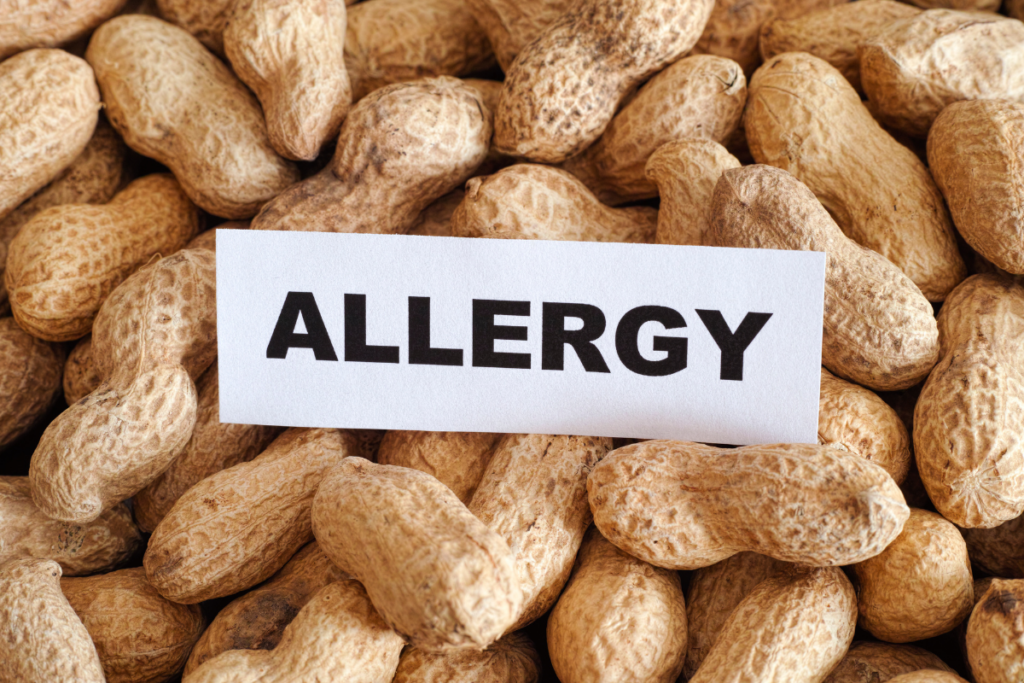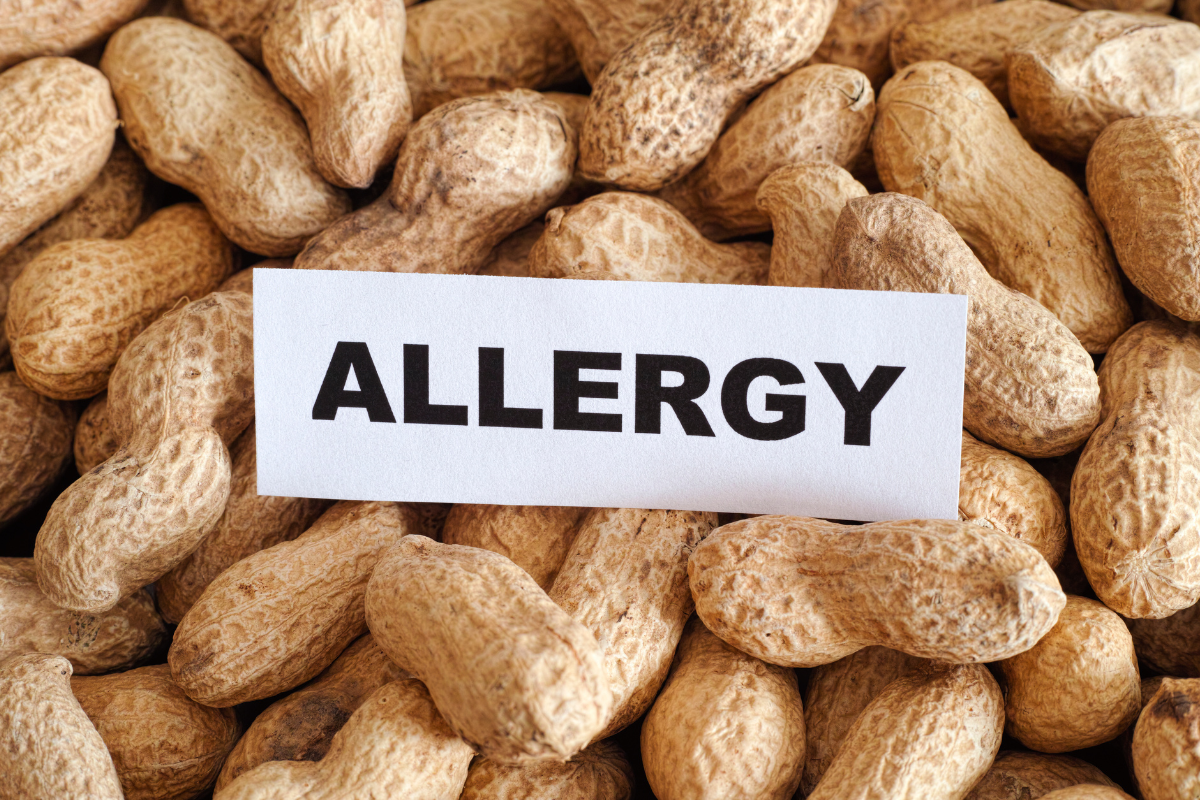Nut allergies are often perceived as a childhood concern. However, as our understanding of allergies evolves, there’s an increasing recognition of the need to address and manage nut allergies in the elderly.
As the body ages, its response to various stimuli, including allergens, can change. This makes recognising and treating nut allergies in the elderly crucial.
In this blog, we’ll delve into understanding nut allergies in the elderly, their symptoms, and effective strategies for care.

Understanding Nut Allergies in the Elderly
It’s a misconception that allergies, including nut allergies, only develop during childhood. Seniors can develop allergies at any age due to a variety of factors, such as weakened immune systems, increased exposure, or medications. Moreover, a senior might have lived their whole life with a mild allergy without recognising it, which may exacerbate in older age.
Identifying Signs of Nut Allergies in the Elderly
Nut allergy manifestations can vary across age groups. In the elderly, the presentation of symptoms might differ slightly compared to younger populations:
- Dermatological Responses: These can present themselves as hives, or in some cases, as eczema.
- Gastrointestinal Indications: Symptoms can be simple as stomach discomfort, or worse, episodes of vomiting, or diarrhoea.
- Respiratory Reactions: Milder symptoms might involve nasal congestion, persistent coughing, or in severe cases, anaphylaxis—a critical reaction that necessitates immediate medical intervention.
- Cardiac Signs: This could be characterised by feelings of light-headedness or actual fainting spells, often linked to lowered blood pressure.

It’s essential to be vigilant about these symptoms to ensure prompt care. However, a consultation with a healthcare expert is vital for a definitive diagnosis.
Caring for a Senior with Nut Allergies
When caring for an elderly individual with a nut allergy, it’s paramount to adopt a proactive approach:
Educate Yourself: Understand the specific type of nut allergy. Is it peanuts, tree nuts, or both?
Safe Dining: Prepare meals with care, reading ingredient labels diligently. Always avoid cross contamination of nuts when handling food and drinks, as some cases can be deadly if touched or consumed.
Emergency Preparedness: Always have an epinephrine auto-injector on hand if prescribed, and be trained to use it. Be sure to regularly check the EpiPens are in date, as they expire a year after manufacture.

Engage the Community: Inform neighbours, other caregivers, and others in the senior’s community about the allergy to ensure collective vigilance.
Taking a few minutes of your time to become properly informed about nut allergies may save your client’s life, or even someone else’s.
Nut-Free Environment for Seniors
If the elderly person is living in a community setting, designating nut-free zones can help to promote a safer, lower-risk area for them to live. If you’re not the primary caregiver, then regularly educating staff and residents about the dangers of nut exposure to allergic individuals will help to prevent any harmful incidents. This will not only provide peace of mind for the individual’s family, but also for the carers and the elderly person themselves.
Emotional Support for Elderly Nut Allergy Patients
For seniors diagnosed with nut allergies, the adjustment can be emotionally taxing, especially when compounded by age-related challenges. Beyond the physical safety measures, it’s essential to acknowledge and address their feelings of anxiety, frustration, or even isolation.

Regular conversations, connecting them with support groups, and education about their allergy can empower them, ensuring they don’t feel overwhelmed. Caregivers and family members play a pivotal role in fostering an environment of understanding and compassion, enabling the elderly to navigate this new aspect of their health with confidence and peace of mind.
Emotional well-being is as crucial as physical health in managing nut allergies.
Nut allergies in the elderly are a significant concern, requiring awareness, understanding, and a collective effort to manage. By recognising the symptoms, ensuring a safe environment, and offering the necessary emotional support, we can ensure that our seniors lead a safe, comfortable, and fulfilling life.
Remember, always consult with a healthcare professional when it comes to medical concerns. Your vigilance and informed approach can make all the difference in the life of an elderly loved one with a nut allergy.
How can Care in Kent help?
If you know a loved one with a nut allergy that needs some additional support, then contact our team today to discuss their care options. Our incredible carers can provide a range of at-home services, from helping with personal care to complete respite care.


